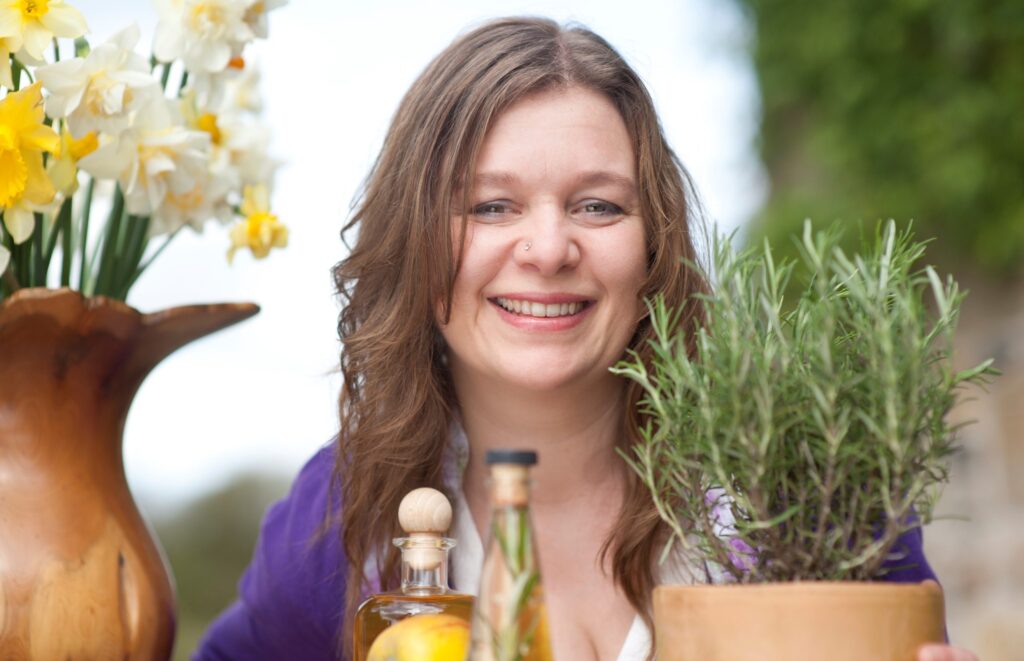
Pamela Spence – Using Herbs To Promote Happiness And Energy

 Herbs have been used in energetic ways since ancient times. We smudge with sage and other herbs to clear a space of negativity. We mix incense with different herbs to create different atmospheres and to attract things into our space. In the modern day many energy workers will burn either incense or essential oils for the qualities that they bring to a healing session.
Herbs have been used in energetic ways since ancient times. We smudge with sage and other herbs to clear a space of negativity. We mix incense with different herbs to create different atmospheres and to attract things into our space. In the modern day many energy workers will burn either incense or essential oils for the qualities that they bring to a healing session.
For me, herbs work on several levels. There is the pharmacological, physical level where they can work with our bodies to improve function and alleviate symptoms. There is the emotional level where they can help to reduce negative emotions often created by stress, and there is the more subtle energetic level where they can be used to clear stuck situations, or to allow release and healing to occur.
Perhaps the best known medium for using herbs in this more subtle way is with flower remedies. Simply a few drops in water, often taken each day, can help to undo old patterns that no longer serve us on a much deeper level. The most famous of these flower remedies is of course those of Dr Bach although I have experienced some really good quality new remedies coming onto the market. Companies like Australian Bush Essences have also used similar techniques to make remedies from their own indigenous plants.
A couple of my favourites are mimulus for fear of known things – when I just can’t stop thinking over a situation and imagining the worst outcome; and I often use the well-known Rescue Remedy when my little boy has had a shock like falling off his bike.
When I am in my dispensary I turn mostly to tinctures for help because I have the widest access to herbs in this medium. A huge number of my patients have low energy as part of their list of presenting complaints when they first see me. There are several ways around improving the situation, often they are trying to get more energy by using caffeine or sugar to jump start the system but unfortunately over time that just doesn’t work.
So we reduce or remove both of those stimulants and look at adaptogens instead. Adaptogens are herbs that help the body to work better when it is under stress. The term first came about in the 1950s when a Russian scientist gave fighter pilots adaptogenic herbs to try to improve their performance. In actual fact, in traditional medical systems, we have been using adaptogenic herbs for millennia; we just didn’t call them that. One that I like particularly for promoting energy levels is milk vetch (Astragalus membranaceus) which I find slowly and sustainably improves stamina, rather than giving a short, fast hit that needs to be paid back later.
Happiness means many different things to each person, but one thing that it requires on a chemical level is enough feel-good neurotransmitters swimming around the brain. A good source of B-vitamins is vital and herbs like oatstraw (Avena sativa) can be helpful here. Mood enhancers like lemon balm (Melissa officinalis) help where anxiety is a problem; rosemary (Rosmarinus officinalis) where the mood is low and concentration is poor and skullcap (Scutellaria lateriflora) where there is irritability and overwhelm.
The ability of the plant kingdom to support us in our quest for energy and happiness is boundless. With self-care, and the right herbal preparation – aromatics, tinctures, teas or just being amongst the plants in their own environment – there is a wealth of support out there if we take the time to explore.
If you have an underlying health condition or take prescription medication do check in with your local herbal expert for advice on the safe use of herbs for your situation. You can find your local medical herbalist at www.nimh.org.uk/find-a-herbalist
About The Author

 Pamela Spence is an educator, medical herbalist and writer. As well as working from her private practise in Scotland, she is also a herbal expert advisor to Twinings Tea International and Deep Heat and is a member of the National Institute of Medical Herbalists and the College of Medicine and Integrated Health.
Pamela Spence is an educator, medical herbalist and writer. As well as working from her private practise in Scotland, she is also a herbal expert advisor to Twinings Tea International and Deep Heat and is a member of the National Institute of Medical Herbalists and the College of Medicine and Integrated Health.
